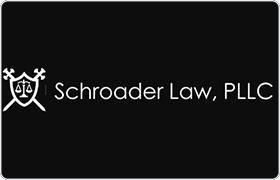Dupont Divorce & Family Law Lawyer, Washington
Sponsored Law Firm
-
 x
x

Click For More Info:
-
Schroader Law, PLLC
1105 Tacoma Ave S Tacoma, WA 98402» view mapDivorce & Family Law Exceptional Legal Service
Schroader Law, PLLC offers superior service from start to finish. Attorney Schroader is a knowledgeable lawyer offering comprehensive legal advice with realistic expectations.
800-916-9671
James Martin Thrasher
Administrative Law, Family Law, Education, Securities Regulation
Status: Inactive Licensed: 46 Years
Glen Evan Templeton
Military, Landlord-Tenant, Wills & Probate, Family Law
Status: In Good Standing Licensed: 27 Years
Debra S. Morse
Landlord-Tenant, Wills & Probate, Family Law, Divorce & Family Law, Consumer Protection
Status: In Good Standing
Michael Jay Burns
Government, Employee Rights, Family Law, Administrative Law
Status: In Good Standing Licensed: 31 Years
J. Arvid Anderson
Insurance, Personal Injury, Family Law, Estate Planning
Status: Inactive Licensed: 53 Years
Ronald Anthony Gomes
International Tax, Bankruptcy, Family Law, Criminal
Status: Suspended Licensed: 23 Years
Sheila Malloy Huber
Juvenile Law, Federal Appellate Practice, Family Law, Adoption
Status: In Good Standing Licensed: 46 Years
 Dennis Schroader Tacoma, WA
Dennis Schroader Tacoma, WA Practice AreasExpertise
Practice AreasExpertise
